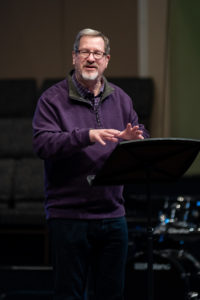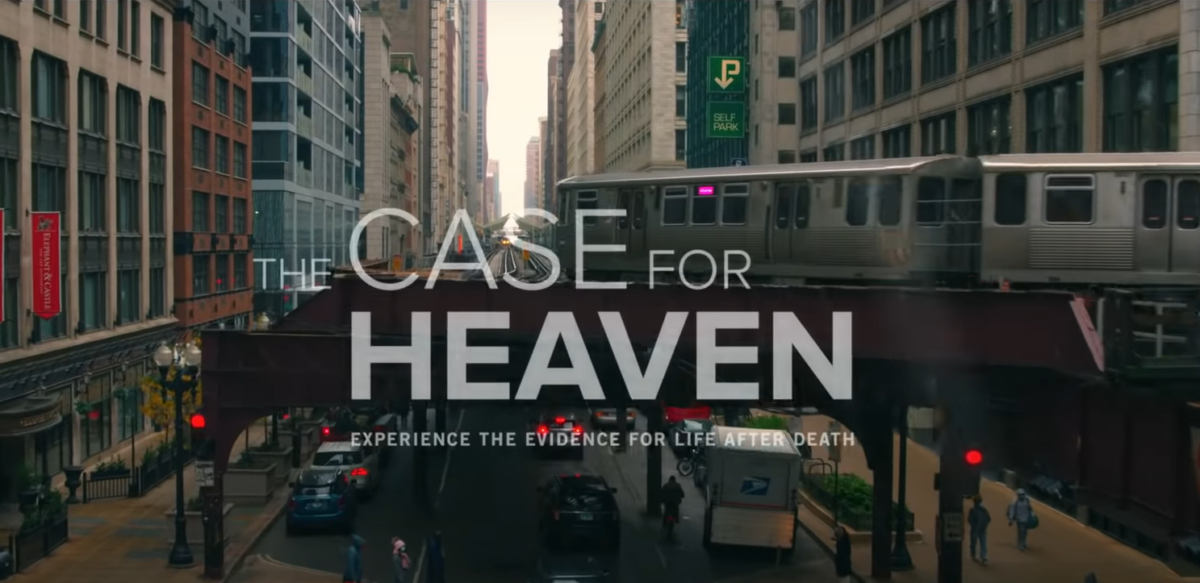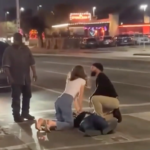“I think the fear of death drives a lot of our lives,” said author Lee Strobel in the new full-length documentary film, “The Case for Heaven.”
“We try to suppress it; we try to ignore it; we try to deny it; we try to distract from it, but the truth is — our fear of death, some experts say, drives all of culture. This underlying fear of what happens when we die drives a lot of people’s ambitions; it drives what they do and how they do it. They want to be immortal.”
To help “make a case for heaven,” Strobel interviewed apologist Clay Jones, author of “Immortal,” best-selling author John Burke who wrote “Imagine Heaven,” evangelist Francis Chan, author of “Crazy Love,” and others.

Strobel was a speaker at the recent Sharing Hope Conference at First Baptist Church in Pelham, sponsored by the Alabama Baptist State Board of Missions.
Released theatrically for three days in April, the film weaves some of Strobel’s personal experiences with topics ranging from those who have fallen away from the faith to what hell is and what happens during near-death experiences.
“The pandemic has a lot of people pondering what happens after people close their eyes for the last time in this world,” Strobel said at the Sharing Hope event. “This film provides compelling evidence from both inside and outside the Bible to show that we will, indeed, continue to live on.”
Perspective
In the documentary Strobel refers to Yuri Gagarin, the first man in space, who said he looked around and didn’t see God. But Buzz Aldrin, an American astronaut who landed on the moon in 1969, had communion in space on Christmas Eve and affirmed that God was real. Strobel used this example to show how perspective influences belief.
“What that tells me is that some people see the same evidence and come to different conclusions,” he explained, “You have to ask yourself, ‘What’s driving that? Do I have reasons not to believe? Are there reasons I don’t want to believe? Are there things in my life that I would have to give up if I became a believer in God? Are there certain immoral things that I would have to give up because they are immoral in God’s sight so I would rather find reasons not to believe than to believe?’
“We have to try to filter out our motives as much as we can and say, ‘I want to reach a verdict in the case for heaven based on the evidence and not on my wishful thinking,’” Strobel told the audience, “or not on my preconceptions, or not on my biases or prejudices. I want to reach it based on what is the evidence. Is there sufficient evidence to tell me that when I die I will continue to live on?”
Heaven’s impact
At the conclusion of the documentary, Strobel insists that if a person believes in heaven, it should impact everything.
“It should ripple through every aspect of our lives,” he noted. “At some point, we realize that when we close our eyes in this world, that isn’t the end of our existence, but there’s another chapter to come.”
Strobel was an award-winning journalist for The Chicago Tribune and a staunch atheist. After his wife told him she had become a Christian, Strobel decided he needed to prove Christianity wrong. He researched the evidence of its claims for nearly two years before becoming a Christian himself in 1981.
His most recent venture is serving as founding director of the Lee Strobel Center for Evangelism and Applied Apologetics at Colorado State University.
Plans are not yet finalized for how “The Case for Heaven” will be distributed by video and/or streaming platforms. The book can be found on Amazon and wherever books are sold.










